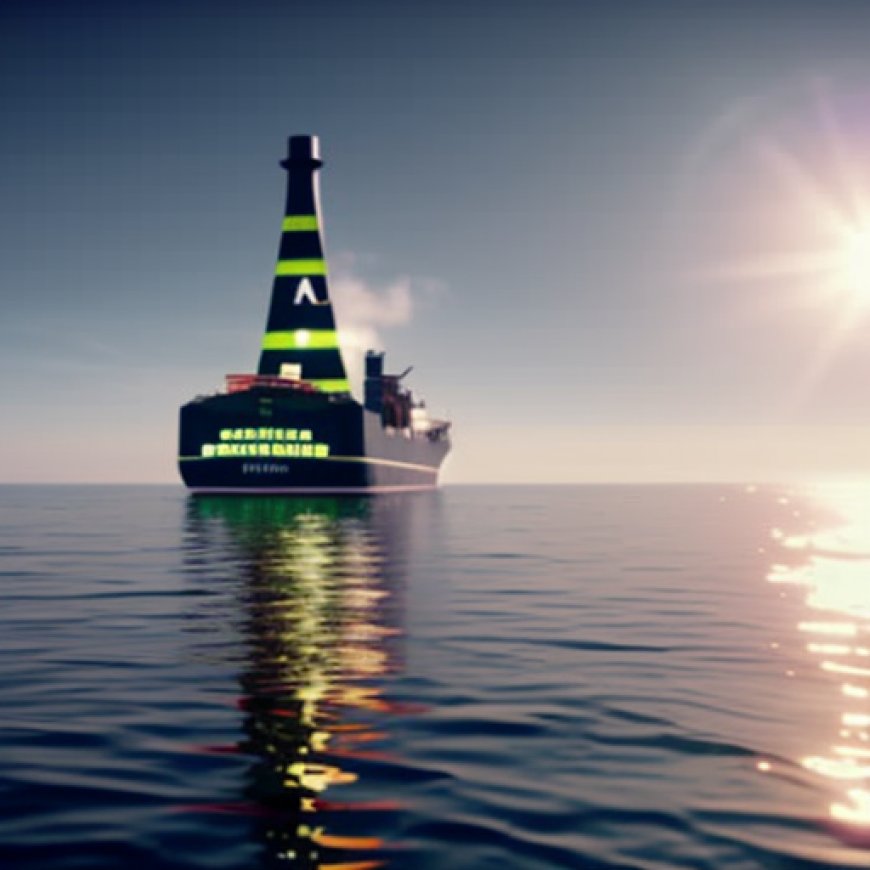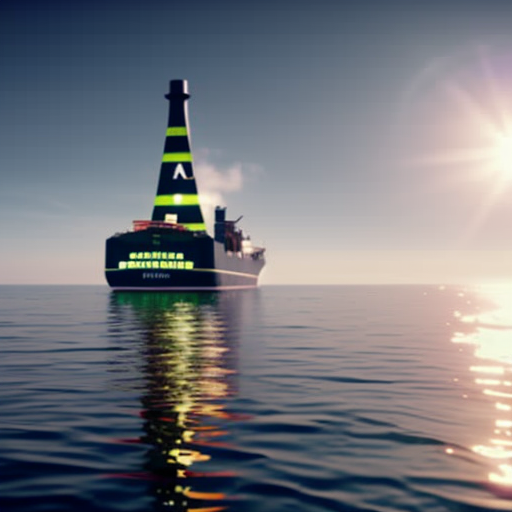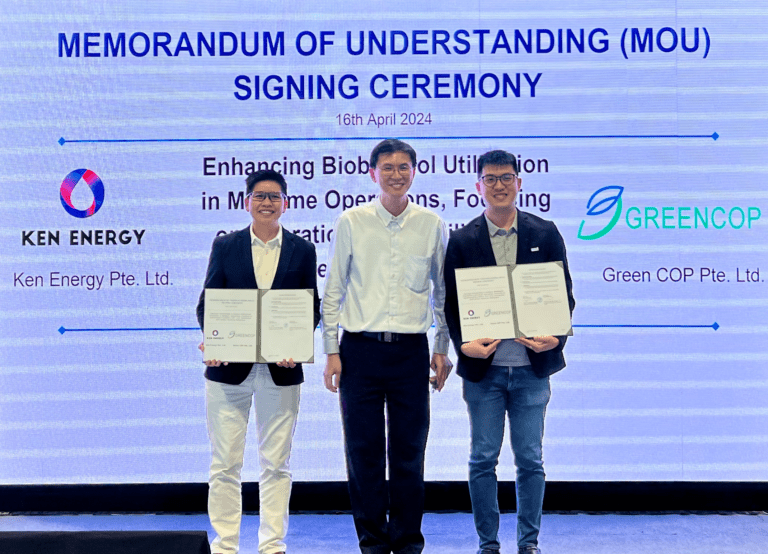Coastal Sustainability Alliance boosts maritime biofuel development
Coastal Sustainability Alliance boosts maritime biofuel development Biofuels International Magazine


The Coastal Sustainability Alliance (CSA) Advances Maritime Biofuel Ecosystem in Singapore

The Coastal Sustainability Alliance (CSA), an industry collaborative effort led by Kuok Maritime Group (KMG), has announced plans to advance the maritime biofuel ecosystem in Singapore through investments of up to $10 million (€6.9 million).
Partnership for Sustainable Development
This partnership will be spearheaded by two members of the CSA Alliance, Green COP and Ken Energy, who have formalized a Memorandum of Understanding (MoU).
Over the next two years, the CSA aims to achieve the following Sustainable Development Goals (SDGs) in the development of stable biofuel blends:
- Develop B30, B40, and B50 biofuel blends
- Produce and commercially adopt up to 50% (B50) biofuel derived from 50% agri-waste to biobutanol
- Significantly reduce carbon emissions in maritime operations
To accomplish these goals, the CSA will undertake the following steps:
- Certify the biofuel blends
- Commence sea trials
- Construct a production plant by 2025
- Launch commercial-scale production by 2026
These efforts in decarbonizing the maritime sector will contribute to the CSA’s mission of building the next generation of Singapore’s coastal ecosystem.
Commitment to Sustainable Maritime Solutions
Tan Thai Yong, Managing Director of Strategic Projects and Technology at Kuok Maritime Group and Chairperson of the CSA Council, expressed the importance of this initiative:
“The formation of the biofuel ecosystem under the Coastal Sustainability Alliance demonstrates our commitment to foster partnerships and deliver innovative sustainable maritime solutions for our conventional fleet owners as they progressively switch to lower emissions vessels. In bringing together Green COP and Ken Energy, we are laying the groundwork for a new biofuel supply chain and providing a viable alternative in the energy transition for the maritime sector.
This initiative is more than an advancement in fuel technology as it exemplifies the power of collaboration, underscoring the CSA’s role as a steward and catalyst for positive change in the maritime industry.”
Driving Biofuel Development
The CSA is actively driving the development of maritime biofuels to provide a viable alternative for vessels to reduce carbon emissions. The ecosystem will ensure a ready supply of biofuel for local coastal demand and maintain the quality and stability of the biofuels through a traceable supply chain.
This initiative also aims to enhance Singapore’s standing in the Global Biofuels Alliance by establishing new research and development (R&D) and innovation tracks in line with the nation’s environmental commitments.
SDGs, Targets, and Indicators
1. SDGs Addressed or Connected to the Issues Highlighted in the Article:
- SDG 7: Affordable and Clean Energy
- SDG 9: Industry, Innovation, and Infrastructure
- SDG 13: Climate Action
- SDG 14: Life Below Water
- SDG 17: Partnerships for the Goals
2. Specific Targets Under Those SDGs Based on the Article’s Content:
- SDG 7.2: Increase substantially the share of renewable energy in the global energy mix
- SDG 9.4: Upgrade infrastructure and retrofit industries to make them sustainable
- SDG 13.2: Integrate climate change measures into national policies, strategies, and planning
- SDG 14.1: Prevent and significantly reduce marine pollution of all kinds
- SDG 17.6: Enhance North-South, South-South, and triangular regional and international cooperation on and access to science, technology, and innovation
3. Indicators Mentioned or Implied in the Article:
- B30, B40, and B50 biofuel blends
- Production and commercial adoption of up to 50% (B50) biofuel derived from agri-waste to biobutanol
- Biofuel certification
- Sea trials
- Building a production plant by 2025
- Launching commercial-scale production by 2026
- Ready supply of biofuel for local coastal demand
- Quality and stability of biofuels with supply chain track and trace
- New R&D and innovation tracks in line with environmental commitments
Table: SDGs, Targets, and Indicators
| SDGs | Targets | Indicators |
|---|---|---|
| SDG 7: Affordable and Clean Energy | Increase substantially the share of renewable energy in the global energy mix (SDG 7.2) | B30, B40, and B50 biofuel blends |
| SDG 9: Industry, Innovation, and Infrastructure | Upgrade infrastructure and retrofit industries to make them sustainable (SDG 9.4) | Biofuel certification, building a production plant by 2025, launching commercial-scale production by 2026 |
| SDG 13: Climate Action | Integrate climate change measures into national policies, strategies, and planning (SDG 13.2) | Sea trials, quality and stability of biofuels with supply chain track and trace |
| SDG 14: Life Below Water | Prevent and significantly reduce marine pollution of all kinds (SDG 14.1) | Ready supply of biofuel for local coastal demand |
| SDG 17: Partnerships for the Goals | Enhance North-South, South-South, and triangular regional and international cooperation on and access to science, technology, and innovation (SDG 17.6) | New R&D and innovation tracks in line with environmental commitments |
Behold! This splendid article springs forth from the wellspring of knowledge, shaped by a wondrous proprietary AI technology that delved into a vast ocean of data, illuminating the path towards the Sustainable Development Goals. Remember that all rights are reserved by SDG Investors LLC, empowering us to champion progress together.
Source: biofuels-news.com

Join us, as fellow seekers of change, on a transformative journey at https://sdgtalks.ai/welcome, where you can become a member and actively contribute to shaping a brighter future.







